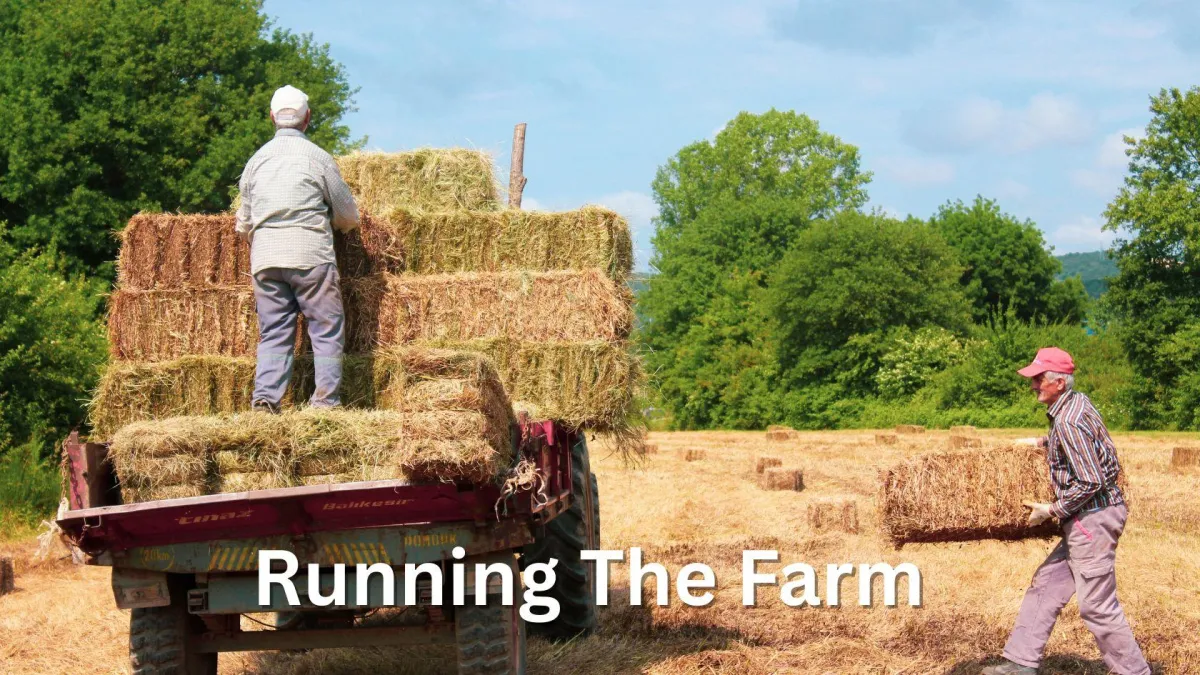Running Your Lifestyle Farm: Land, Tools and Seasonal Jobs

Managing a lifestyle block isn’t just about the animals, it’s about the land that supports them. From fencing and pasture care to water systems and feed management, good planning and regular upkeep make all the difference.
This guide introduces key aspects of land and infrastructure management on a small farm in New Zealand. It’s grounded in practical, proven advice from farmers who know our soils, our weather, and the unique demands of rural life here.
If you’re looking for seasonal guidance, our Monthly Farming Diary highlights what’s happening on the land right now and what tasks to stay on top of. The diaries are based on North Island conditions, if you’re in the South Island, expect things to run about a month later.
Fencing: First Line of Defence
Secure fencing is critical. Not just to keep animals in, but to keep them safe. Choose materials based on the species you’re running, the terrain, and your budget. Electric fencing is useful for temporary setups or subdividing paddocks, but permanent fences should be built to last.
Check fences regularly for damage, especially after storms or stock pressure. Gates, hinges, and strainers all need maintenance.
Fencing is one of the biggest long-term investments you'll make - our fencing articles cover materials, layout, and tips to avoid common mistakes.
Thinking about fencing?
Before You Start Fencing is your go-to guide for planning any fencing project on a lifestyle block. It won’t teach you to build a fence—but it will help you ask the right questions, avoid costly mistakes, and make decisions that suit your land, stock, and budget.
✔ What fence works best for goats, sheep, cattle or horses?
✔ What are battens, strainers, insulators—and do you need them?
✔ How do you plan a fence that lasts and won’t drive you mad?
Get real-world advice drawn from decades of experience.
Pasture Management
Healthy pasture reduces feed costs and keeps animals in good condition. Rotational grazing is key, move animals before they overgraze, and allow paddocks time to recover.
Soil testing helps you understand nutrient levels and guides fertiliser use. Weed control, especially of ragwort, thistles and buttercup, is an ongoing task on most blocks.
If you're looking at pasture improvement, start here for practical advice on fertilisers, pasture management, and weed control.
Need a hand with pasture? Start with the soil
Before you can grow better pasture, you need to understand what’s happening beneath your feet. Understanding Soil & Fertiliser is a practical guide to the basics—what matters, what doesn’t, and how to make fertiliser decisions that actually make a difference. It’s written for lifestyle farmers and cuts through the confusion without dumbing things down.
Once you’ve got a handle on your soil health, it’s time to make the most of your paddocks.
Pasture Management takes things a step further, helping you understand how pasture grows, what affects its quality, and how to use it more effectively. Whether you’re running a few sheep or managing multiple species, this guide gives you the tools to grow better feed—and waste less of it.
Legal Responsibilities
Owning livestock comes with legal duties. NAIT registration, animal movement tracking, fencing laws, and animal welfare standards all apply to lifestyle farmers.
Make sure you’re familiar with your regional council’s rules, particularly regarding water use, effluent management, and land development.
We have the relevant information so you know the rules you need to follow.
Feed Planning and Storage
Most blocks can’t rely on pasture alone, especially through winter and drought. Know your animals’ nutritional needs and plan for supplementary feeding: hay, baleage, pellets, or minerals.
Store feed safely in dry, rodent-proof areas, and monitor consumption. Underfeeding or poor nutrition leads to illness and poor growth, while overfeeding creates waste and cost and can cause problems with fertility and birthing.
For expert advice on feed and forage on your lifestyle block check out our articles here.
Water Systems
All livestock need access to clean, reliable water. Troughs must be clean and safe. Rainwater tanks, bores or creek-fed systems all have pros and cons -maintenance is critical, especially in dry spells or freezing conditions.
Walk your block to identify low-pressure points or areas where overflow could cause erosion or bogging.
Whether it's knowing how much water you'll use or how to clean a trough we have everything covered.
Getting the Work Done
Block work never really ends, but having the right tools and routines makes it manageable. Invest in a basic toolkit, good gloves, and a diary to plan seasonal tasks.
Use our monthly block diaries and planning tools to keep your to-do list realistic. We have some expert advice too on equipment & machinery. If it's general maintenance you're after check our farm upkeep advice and information on weeds is here.
Support & Legal
Get Rural Tips & Seasonal Updates
Subscribe to the LSB monthly newsletter.
© 2025 Lifestyleblock.co.nz | LSB Ltd Proudly off-grid and NZ-owned

